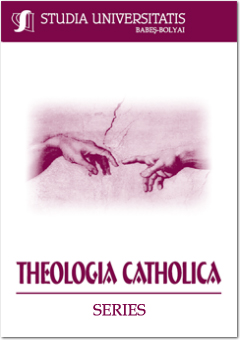PRIESTERBILDUNG IN DER RUMÄNISCHEN UNIERTEN KIRCHE
THE CLERICAL EDUCATION IN THE ROMANIAN UNIATE CHURCH
Author(s): Ernst Christoph SuttnerSubject(s): Christian Theology and Religion
Published by: Studia Universitatis Babes-Bolyai
Keywords: clerical education; Byzantine tradition; Counter-Reformation; Tridentine theology; Greek-Catholic identity; Latin influence.
Summary/Abstract: The clerical education in the Romanian Uniate Church. The present paper offers an analysis of the clerical education in the Romanian Uniate (Greek-Catholic) Church from the perspective of its liturgical identity. The union of the Orthodox Romanians of Transylvania with the Roman Church marked among others the beginning of a higher theological education. The Romanian candidates for priesthood could study at the most important Catholic universities in Rome and Vienna, but their education was per-formed in the spirit of the Counter-Reformation, which strongly influenced the theologi-cal education institutions later founded in Transylvania. As a result, an evolution began, in which the Greek-Catholics benefited more and more from a theological education in a Latin milieu. As a parallel evolution, during the era of national struggles of the 19th and early 20th centuries, as promoters of this movement, the Romanian Greek-Catholic clergy partly replaced the Byzantine ecclesiastic tradition as a form of identity with the Romanian national spirit. As a result of these two processes the Romanian Greek-Catholic Church became progressively Latinized and, after the fall of Communism, the search for identity became a problem of option between its original Byzantine tradition and the present Latin or Latinized forms of piety.
Journal: Studia Universitatis Babes Bolyai - Theologia Catholica
- Issue Year: 56/2011
- Issue No: 2
- Page Range: 5-32
- Page Count: 27
- Language: German

